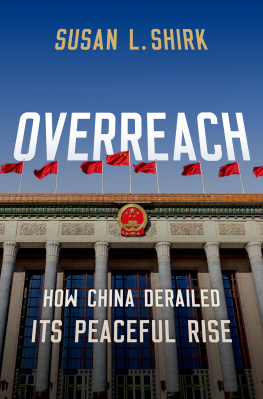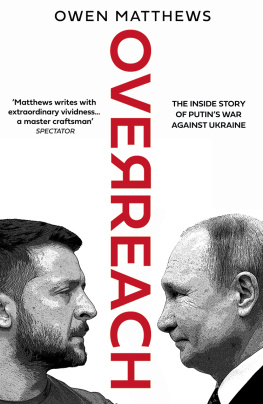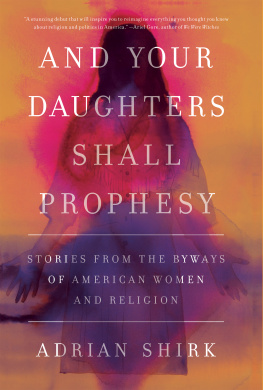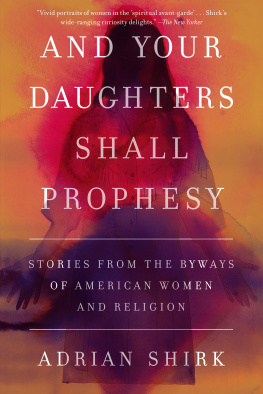Shirk Susan L. - Overreach
Here you can read online Shirk Susan L. - Overreach full text of the book (entire story) in english for free. Download pdf and epub, get meaning, cover and reviews about this ebook. year: 2022, publisher: Oxford University Press, Incorporated, genre: Politics. Description of the work, (preface) as well as reviews are available. Best literature library LitArk.com created for fans of good reading and offers a wide selection of genres:
Romance novel
Science fiction
Adventure
Detective
Science
History
Home and family
Prose
Art
Politics
Computer
Non-fiction
Religion
Business
Children
Humor
Choose a favorite category and find really read worthwhile books. Enjoy immersion in the world of imagination, feel the emotions of the characters or learn something new for yourself, make an fascinating discovery.
- Book:Overreach
- Author:
- Publisher:Oxford University Press, Incorporated
- Genre:
- Year:2022
- Rating:3 / 5
- Favourites:Add to favourites
- Your mark:
- 60
- 1
- 2
- 3
- 4
- 5
Overreach: summary, description and annotation
We offer to read an annotation, description, summary or preface (depends on what the author of the book "Overreach" wrote himself). If you haven't found the necessary information about the book — write in the comments, we will try to find it.
Overreach — read online for free the complete book (whole text) full work
Below is the text of the book, divided by pages. System saving the place of the last page read, allows you to conveniently read the book "Overreach" online for free, without having to search again every time where you left off. Put a bookmark, and you can go to the page where you finished reading at any time.
Font size:
Interval:
Bookmark:


Oxford University Press is a department of the University of Oxford. It furthers the Universitys objective of excellence in research, scholarship, and education by publishing worldwide. Oxford is a registered trade mark of Oxford University Press in the UK and certain other countries.
Published in the United States of America by Oxford University Press
198 Madison Avenue, New York, NY 10016, United States of America.
Susan L. Shirk 2023
All rights reserved. No part of this publication may be reproduced, stored in a retrieval system, or transmitted, in any form or by any means, without the prior permission in writing of Oxford University Press, or as expressly permitted by law, by license, or under terms agreed with the appropriate reproduction rights organization. Inquiries concerning reproduction outside the scope of the above should be sent to the Rights Department, Oxford University Press, at the address above.
You must not circulate this work in any other form and you must impose this same condition on any acquirer.
CIP data is on file at the Library of Congress
ISBN 9780190068516
eISBN 9780190068530
DOI: 10.1093/oso/9780190068516.001.0001
To my Chinese friends and colleagues
who helped me understand their country.
I began this book in 2008 as an investigation into puzzling changes in Chinese foreign policy. I originally planned to update China: Fragile Superpower, but Fragile Superpower morphed into Overreach.
Conversations with my wonderful colleagues in the UC San Diego School of Global Policy and Strategy and the Political Science DepartmentStephan Haggard, Weiyi Shi, Barry Naughton, Peter Cowhey, Victor Shih, Tai Ming Cheung, Ruixue Jia, Molly Roberts, Yiqing Xu, Eddy Malesky, and David Lakehelped stimulate my thinking.
I am especially grateful to Lei Guang, the executive director of the UC San Diego 21st Century China Center, whose partnership has been invaluable at every step of the way both with the book and the centers development.
I learned as much from the talented hard-working graduate students who were my research assistants on this book project, Adam Wu, Yin Yuan, Jiying Jiang, Jason Wu, and Yuanhao Liu as they did from me.
The participants in the 21st Century China Centers 2016 conference on the Evolution of Communist Political Institutions contributed greatly to the evolution of my ideas. Alice Lyman Miller was a patient collaborator as we worked together on the PRCs political institutionalization, and Jack Snyders writings and personal encouragement provided valuable guidance.
Orville Schell has been a great partner as co-chair of the UC San Diego Asia Society Task Force on US Policy Toward China since 2015. The thoughtful and well-informed debates among the Task Force members have shaped my views on American policy toward China.
Thank you to the individuals and foundations (Carnegie Corporation and Luce) who by generously contributing to the 21st Century China Center have thereby helped me write this book.
The clarity and style of the writing were greatly improved by the time and skill that my Oxford University Press editor Timothy Bent devoted to it. Also at Oxford, Gabriel Kachuck did a great job of publicizing the book, and Erin Cox of marketing it. Ginny Faber was the copy editor and Jayne Rising the indexer. Im also very grateful to my literary agent Jill Marsal, for her patience, confidence, and wise judgment.
My thanks to Lei Guang, Jack Snyder, Peter Gourevitch, and Barry Naughton for reading the manuscript and providing helpful suggestions for revision. Of course, any mistakes remain my own responsibility.
My husband, Sam Popkin, to whom I have been married for fifty happy years, provided loving encouragement, intellectual questioning, and delicious home-made bread. Fortunately, my children Lucy Shirk Popkin and David Shirk Popkin have always been tolerant and proud of their working mother. They chose wonderful spouses, Seth Demain and Paige Fitzgerald, and gave me the role I love the most, grandmother of Sadie Demain, Henry Demain, and Rowan Popkin.
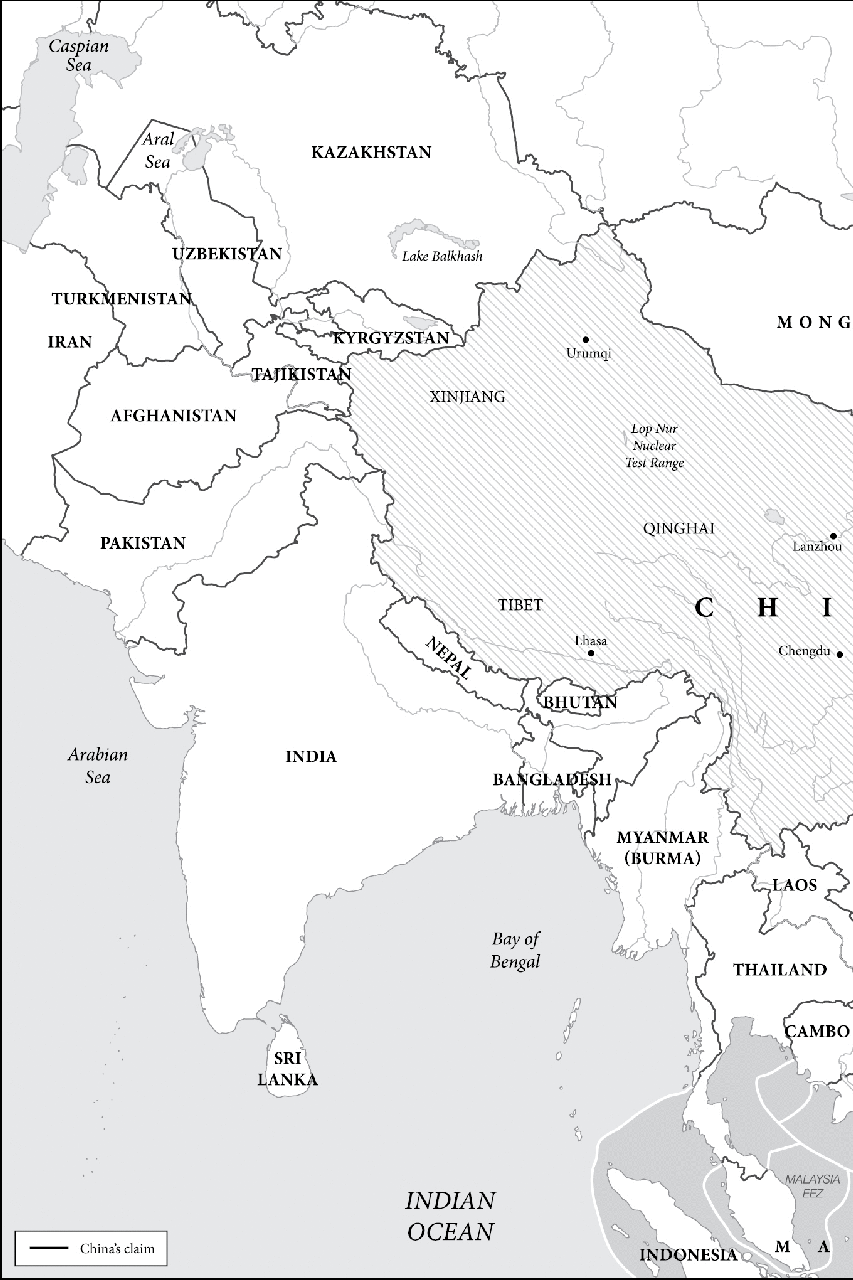
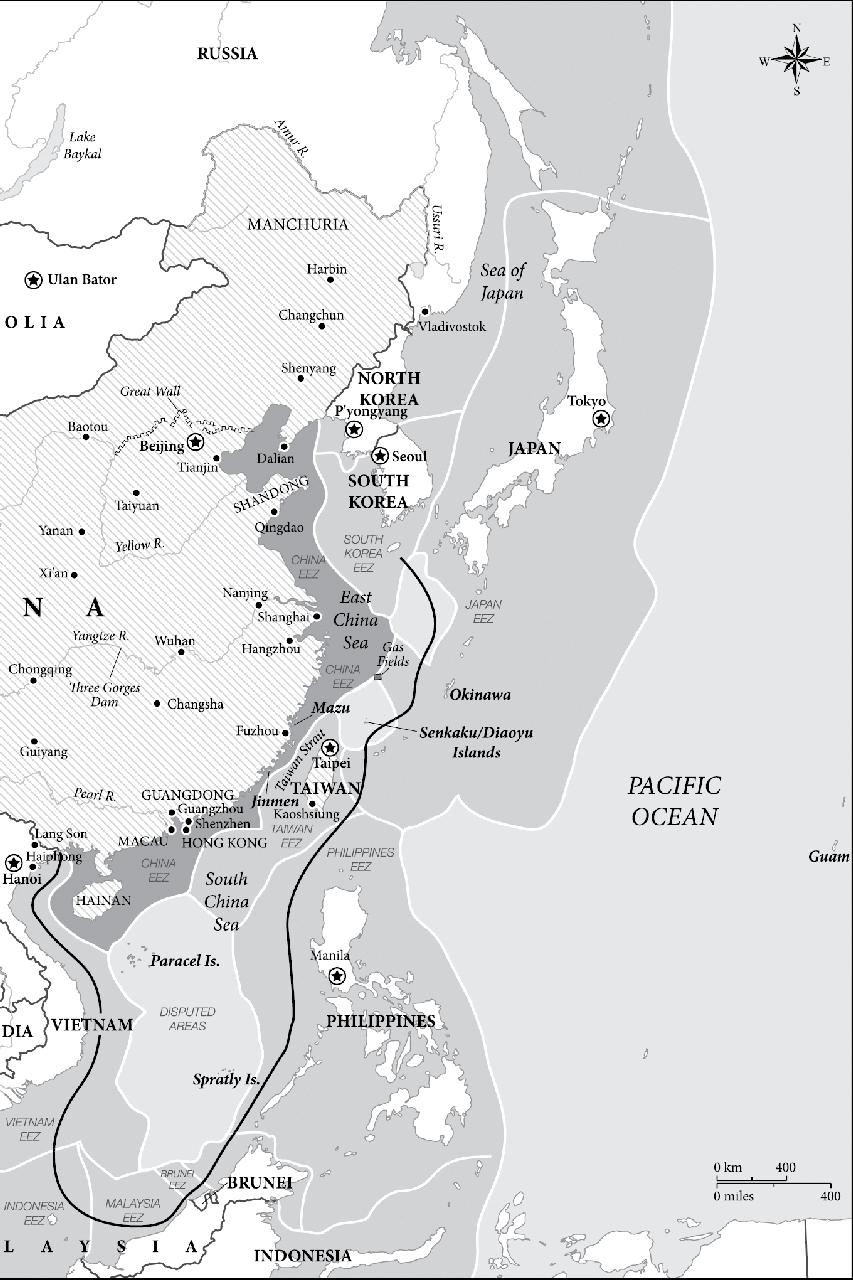
A new cold war has already begun. It will be very different from the first cold war, which pitted the United States against the Soviet Union until it dissolved in 1991. In this cold war, the United States faces China, which is both a rival and a partner. With the former Soviet Union, the lines of separation were clear. With China they are not. China and the United States are economically and socially interdependent, more so than the Soviet Union and the United States ever were. Yet the interconnections havent prevented them from hurtling into hostility. Paradoxically, their interdependence could make the new cold war more dangerous than the old one.
How did things end up in this way? Over the past forty years China and the United States had gotten along remarkably well, despite the vast differences between their political systems and Chinas rapid rise as an economic and military rival. They wove a dense fabric of trade, investment, technology, education, and personal ties that benefited people in both countries. Chinas transformation into a manufacturing dynamo with a huge appetite for oil, iron, copper, and other raw materials from Africa, Latin America, Asia, and the Middle East helped narrow the global inequalities between wealthy and developing nations. International production chains based on economic advantage rather than on ideology created an incentive for all countries to get along with one another, creating the foundation for this long era of peace. Scientists and engineers born in China, America, and other countries worked side by side in US research labs, making breakthrough discoveries. Students, tourists, and businesspeople flowed back and forth across the Pacific.
Hostilities became even more enflamed when Xi Jinping embraced Russian leader Vladimir Putin in a lengthy statement pledging their friendship without limit in February 2022, on the eve of the Beijing Winter Olympics and just weeks before Putin invaded Ukraine. When faced with a stark choice of whether to align China with Russia or the West, Xi acted out of autocratic affinity. Relations with America and Europe may never recover from Chinas backing of Russias unprovoked war against the Ukrainian people.
The more that China and America exploit their economic and technological leverage to pressure each other, the more each feels the need to reduce its vulnerability by decoupling their economies and technologies. Washington and Beijing have been punishing the others companies as proxies for the governments, trading sanctions in a tit-for-tat battle that pummels both economies. Meanwhile, the governments are investing heavily to bring their production chains safely home or move them to a reliably friendly country.
The consequences of decoupling would be costly. The Chinese and American economies constitute a very large share40 percentof the worlds economy. As the two countries accelerate their drives for economic and technological self-reliance, they are pressing other countries to join Decoupling has already begun to disrupt the global economy. Even before the onset of the COVID-19 pandemic, global growth in 2019 was the lowest in a decade.
Font size:
Interval:
Bookmark:
Similar books «Overreach»
Look at similar books to Overreach. We have selected literature similar in name and meaning in the hope of providing readers with more options to find new, interesting, not yet read works.
Discussion, reviews of the book Overreach and just readers' own opinions. Leave your comments, write what you think about the work, its meaning or the main characters. Specify what exactly you liked and what you didn't like, and why you think so.

